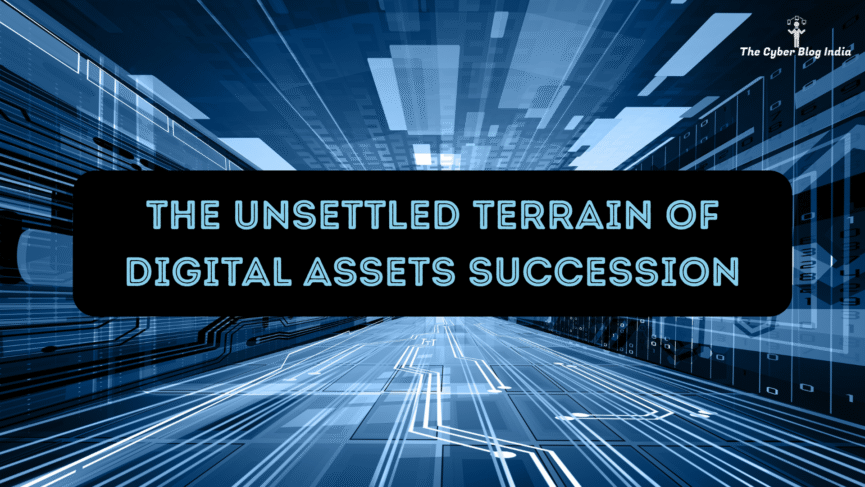The Unsettled Terrain of Digital Assets Succession

In today’s digital age, our lives extend far beyond the physical realm. The digital footprint we leave behind, encompassing email inboxes, social media accounts, sentimental belongings like photos and messages, as well as crypto wallets, cloud storage, and NFTs, is vast and often highly valuable. Even after meticulous estate planning, a pressing question remains: What happens to our digital assets after we die?
Recently, the CEO of a Canadian crypto exchange platform passed away without sharing access credentials to his assets, resulting in a loss of over $190 million in funds. This is one of many cautionary tales highlighting the limitations of succession laws in addressing digital assets. Digital assets, and the question of their ownership, are no longer a niche concern. Nevertheless, the disposition or succession of these assets through inheritance after the original owner’s death is an emerging concern with enormous legal ambiguities.
Typical Disposal of Assets
Generally, the property and assets of a person, after their death, are disposed of according to their wills or personal succession laws. Section 2(h) of the Indian Succession Act, 1925, provides for the definition of a will. A will is a legal declaration made with the intention of the testator concerning their property, which they desire to be carried out after their death. This essentially means that any legal declaration, even one written on a kitchen napkin, scrap paper, or even a cardboard box, is a will provided it fulfils the conditions given in Section 63. Although proper legislation exists, amicable disposal of digital assets often becomes impossible or an unachievable feat using traditional means.
What are Digital Assets?
Digital assets can include anything stored on a digital or online platform that is identifiable, discoverable, and distinct, and has or provides value. Financial digital assets exist in the form of cryptocurrencies, NFTs, trading accounts, UPI wallets, software licenses, and subscription-based streaming services. Examples of intellectual digital assets include blogs, eBooks, domain names, YouTube channels, gaming assets, and digital artworks. Social media digital assets include emails, digital images, cloud storage, social media handles, personal images, etc. Whether directly monetisable or not, these assets warrant immediate attention and cannot be left unowned.
Gap in Indian Laws
In India, the concept of digital inheritance remains inadequately codified, leaving room for ambiguity. Through Section 5 of the Indian Succession Act, 1925, the applicability of the Act is explicitly extended only to movable and immovable property of the deceased. It does not expressly mention or offer guidelines concerning digital assets. Should digital assets be considered movable property? The Indian courts are yet to answer this question. Moreover, the Information Technology Act, 2000, excludes its applicability to wills, as explicitly stated in Section 1(4) read with Schedule I of the Act. Thus, this further limits the applicability of the Information Technology Act, 2000, in the context of digital assets.
In the absence of a specific statutory framework, the disposition and distribution of digital assets depend extensively on the Terms of Service of the platform in question. Several platforms, such as Google, Apple, and Facebook, allow users to appoint specific individuals to access and control their accounts in the event of inactivity, thereby maintaining a digital legacy. However, this is not the case for digital assets like cryptocurrencies and NFTs.
Comparative Overview
Multiple jurisdictions have acknowledged the existence of digital assets and taken various proactive approaches to address the issue of digital inheritance. For instance, several states in the US have adopted the Revised Uniform Fiduciary Access to Digital Assets Act (RUFADAA). This Act allows a descendant’s executor to access and manage an estate’s digital assets and electronic communications. In France, the PACTE law enables proper handling of digital assets, including custody, purchase using currency, and transmission on behalf of a third party. PACTE stands for Plan d’Action pour la Croissance et la Transformation des Entreprises. PACTE stands for Plan d’Action pour la Croissance et la Transformation des Entreprises. In Germany, the Federal Court of Justice (Bundesgerichtshof) granted direct access to deceased users’ accounts to their heirs in a ruling dated August 27, 2020.
Challenges and Possible Solutions
There are some obvious challenges to the disposition of digital assets in India. First, there is a lack of standardisation, i.e., there are no standard laws or regulations supporting ownership claims or secure access. Second, many digital assets require keys and authentication from the original owner. After the post-mortem, these keys can get permanently lost if they are not shared. Third, tech giants often have platform-specific policies that do not accommodate legal compliance, such as Yahoo’s no right of survivorship clause.
Will is one tool to consider when making a disposition, but it is not sufficient in itself. The rise of digital estate planning services, a global market valued at over $246 billion in 2023, reflects the growing demand for structured and secure methods of managing digital legacies. There are multiple solutions an individual can consider. For example, appointing a password manager that is post-mortem based on a will. Digital asset executors can be appointed, and all the digital assets can be listed. Moreover, one can also explore smart contract-based disposition where assets get transferred to the person tagged as the transferee upon the owner’s death.
Conclusion
Your digital assets are as significant and real as your physical ones, if not more. These assets, whether financial, social, or intellectual, make up an individual’s identity and legacy. Although India lacks a proper structural framework for digital asset succession, your digital footprint is a part of you, and your assets are your choice. To avoid losing them all due to legal ambiguities or technical inaccessibility, you must take proactive steps to ensure the proper disposal of your digital assets.
